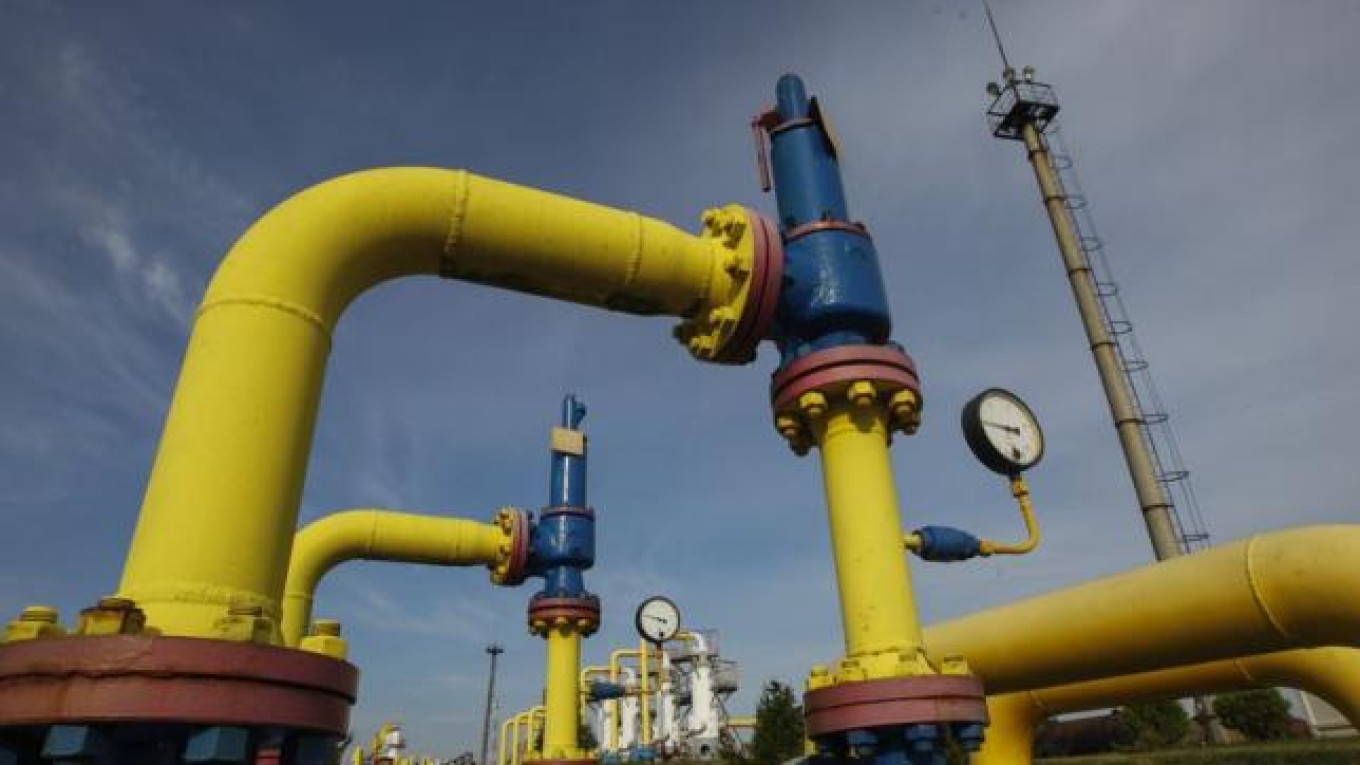Kiev has appealed to the European Union over an agreement between Slovak pipeline operator Eustream and Russia's Gazprom that it says violates EU law in allowing Gazprom to prevent reverse flows back to Ukraine in a key pipeline, according to a document seen by Reuters.
Ukraine, seeking energy independence from Russia, has repeatedly asked Slovakia to allow reverse flows through one of four main pipelines at the Uzhgorod-Velke Kapusany gas transit points on the Ukraine-Slovak border; but Eustream has declined, citing the agreement with Russian supplier Gazprom's export arm.
"As a result, Ukrainian and European energy companies are not able to use this gas connector. … This legacy contract between Eustream and Gazprom Export is in direct violation of EU law," Prime Minister Arseniy Yatsenyuk said in a letter addressed to EU presidents and dated simply June.
Representatives at Eustream and the Slovak Economy Ministry were not immediately available for comment. The European Commission had no immediate comment.
The appeal from Ukraine follows publication of a two-year EU investigation in April that accused Gazprom of abusing its dominant position in Poland, Hungary and six other countries in Eastern Europe by building "artificial barriers" to obstruct gas flows.
Opening up so-called reverse gas flows eastward was part of the EU's response to Gazprom's decision to cut supplies to Kiev for six months in 2014 due to a row over pricing and following Moscow's annexation of Crimea.
Last September, Slovakia upgraded another pipeline to supply reverse flows to Ukraine. The link runs from Vojany power station near the Ukrainian border to the western Ukrainian town of Uzhgorod and has a capacity of 14.5 billion cubic meters per year.
Ukraine Conflict
A legal document supporting Yatsenyuk's letter said Gazprom Export, which controls all gas flows along the Uzhgorod-Velke Kapusany pipelines in Ukraine, is also hindering the work of Ukrainian gas transport monopoly Ukrtransgaz by refusing to provide Ukraine with "shipper codes."
"Ukrtransgaz is effectively hindered from carrying out one of its central functions as a transmission system operator," the memo written by law firm Wikborg Rein and addressed to Ukrainian state energy firm Naftogaz said.
Russia is Europe's biggest supplier of oil, coal and natural gas. Its pipelines through Ukraine are currently the subject of political maneuvering, not for the first time, as the West and Moscow clash over a pro-Russian rebellion in eastern Ukraine.
Russia denies western accusations it is providing troops and arms to rebels to fight Ukrainian forces. It accuses Kiev of persecuting Russian speakers and instigating a conflict that has cost over 6,200 lives since April last year.
Ukraine, which used to source almost all gas imports in Russia, now covers more than 50 percent of its gas needs with reverse flows from Slovakia, Hungary and Poland.
"Full Slovak reverse flow would allow Ukraine to end its dependency on Gazprom and eventually import all of its gas from the EU. This would ease tension and reduce the risk of gas supply disruption for Ukraine and the EU," Yatsenyuk said in the letter.
Russia has halted gas flows to Ukraine three times in the past decade — in 2006, 2009 and for six months last year ?€” because of price disputes with Kiev.
A Message from The Moscow Times:
Dear readers,
We are facing unprecedented challenges. Russia's Prosecutor General's Office has designated The Moscow Times as an "undesirable" organization, criminalizing our work and putting our staff at risk of prosecution. This follows our earlier unjust labeling as a "foreign agent."
These actions are direct attempts to silence independent journalism in Russia. The authorities claim our work "discredits the decisions of the Russian leadership." We see things differently: we strive to provide accurate, unbiased reporting on Russia.
We, the journalists of The Moscow Times, refuse to be silenced. But to continue our work, we need your help.
Your support, no matter how small, makes a world of difference. If you can, please support us monthly starting from just $2. It's quick to set up, and every contribution makes a significant impact.
By supporting The Moscow Times, you're defending open, independent journalism in the face of repression. Thank you for standing with us.
Remind me later.


